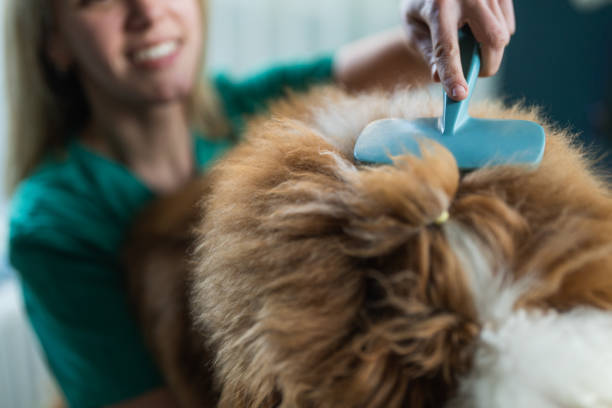Mushrooms have become a popular topic in pet health circles. Pet owners are searching for natural supplements that may support immunity, brain function, and overall wellness in their companions. One mushroom that stands out is lion’s mane, praised for its potential benefits in humans. But before adding it to a dog’s diet, there are key details veterinarians want every owner to understand.
Mention of Lions mane for dogs often sparks curiosity among pet parents. This mushroom has been linked to nerve health, gut balance, and antioxidant support. Still, what works in human studies may not always be safe or effective for pets. Understanding the science, dosage considerations, and veterinary insights is crucial before deciding whether this supplement belongs in a canine routine.
Why This Mushroom Gets Attention
Lion’s mane mushroom is known for its unique appearance that resembles a cascading white mane. Beyond looks, it contains compounds that may support nerve growth and brain function in animals. Researchers have studied its impact on humans, and some early studies suggest similar effects might apply to dogs.
For aging dogs or those with signs of cognitive decline, the idea of a natural brain-supporting supplement sounds appealing. Some believe it could also help with mood regulation or overall vitality. Despite the excitement, professionals caution that most findings come from human or laboratory research, not long-term trials in dogs.
What Vets Emphasize Before Use
Veterinarians underline several key factors that must be addressed before giving lion’s mane to dogs. These include:
Quality Control
Supplements vary in quality, and mushrooms are particularly prone to contamination if sourced poorly. Not all products are tested for toxins, pesticides, or heavy metals. Vets recommend seeking brands that provide third-party lab reports.
Dosage Concerns
The correct amount for dogs is not universally established. Too much of any supplement can disrupt digestion or interact with medications. Without professional guidance, owners risk overdoing it.
Existing Health Conditions
Dogs with liver, kidney, or immune-related concerns may react differently to mushroom supplements. A vet can determine whether lion’s mane is safe for a particular pet’s health profile.
Potential Benefits Highlighted by Research
Although more studies are needed, some areas of interest include:
- Cognitive Support: Possible improvement in memory and learning, especially in senior dogs.
- Nerve Regeneration: Compounds in lion’s mane may encourage nerve cell repair.
- Digestive Health: Certain elements could support gut balance, though evidence is limited.
- Mood Stability: Some findings suggest potential calming properties.
These possibilities are what spark curiosity, yet professionals remind owners that results are not guaranteed.
The Importance of Professional Guidance
Introducing supplements without veterinary input may cause more harm than good. Professionals can recommend whether it is necessary and provide guidance on a safe introduction. They can also monitor the dog’s progress and adjust recommendations if needed.
A vet might suggest starting with a very small amount to test tolerance. If no negative reactions appear, the dosage could be carefully adjusted. This gradual approach helps reduce risks and ensures safety.
Questions to Ask Your Vet
Before trying lion’s mane, pet owners should be prepared to ask questions such as:
- Is this supplement suitable for my dog’s age and health?
- What dosage would be appropriate?
- Could it interfere with any current medications?
- What signs should I watch for that might indicate a negative reaction?
These conversations help ensure the supplement is introduced responsibly.
Lion’s mane mushroom shows promise for dogs, particularly for cognitive support and nervous system health. Dog owners should treat it as a supplement that requires careful consideration rather than a guaranteed solution. With guidance from a professional, lions mane for dogs can be explored as a potential addition to a wellness plan. However, safety and suitability must always come first. The best step is always an open discussion with a veterinarian before adding anything new to a dog’s routine.
Published by HOLR Magazine.


